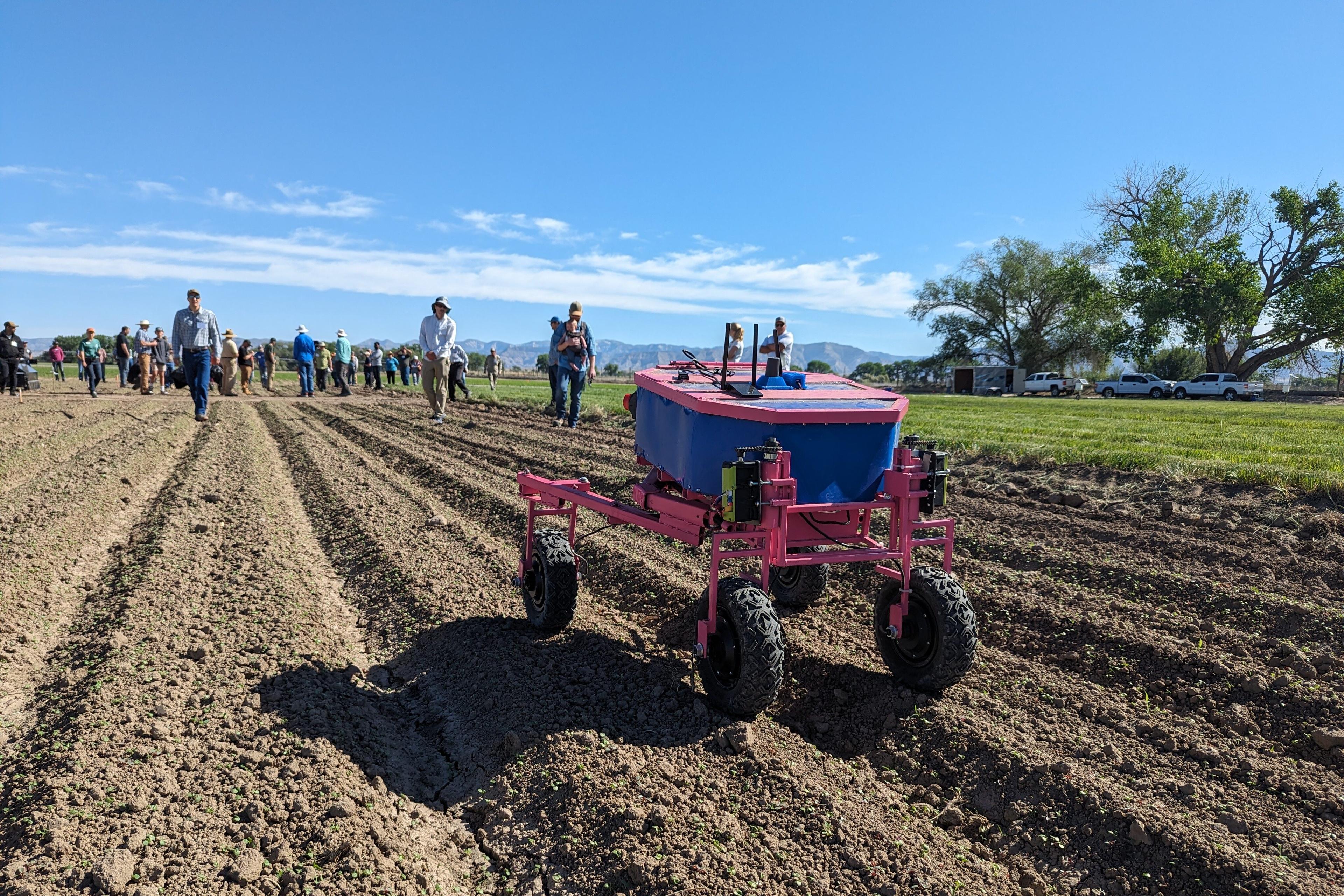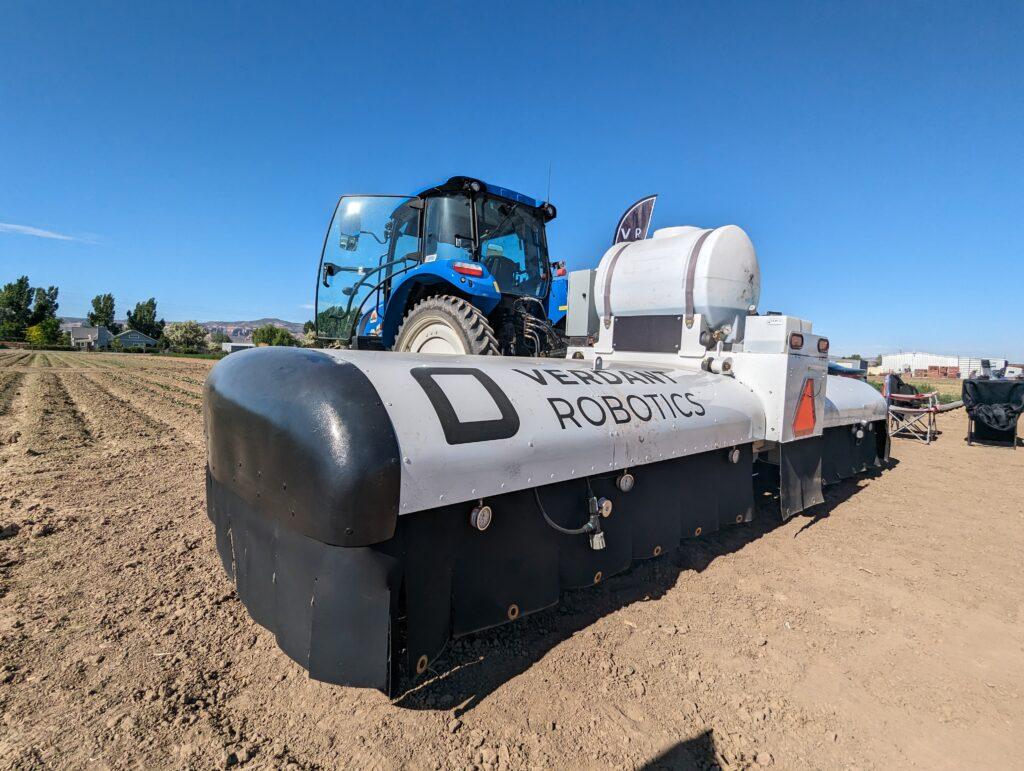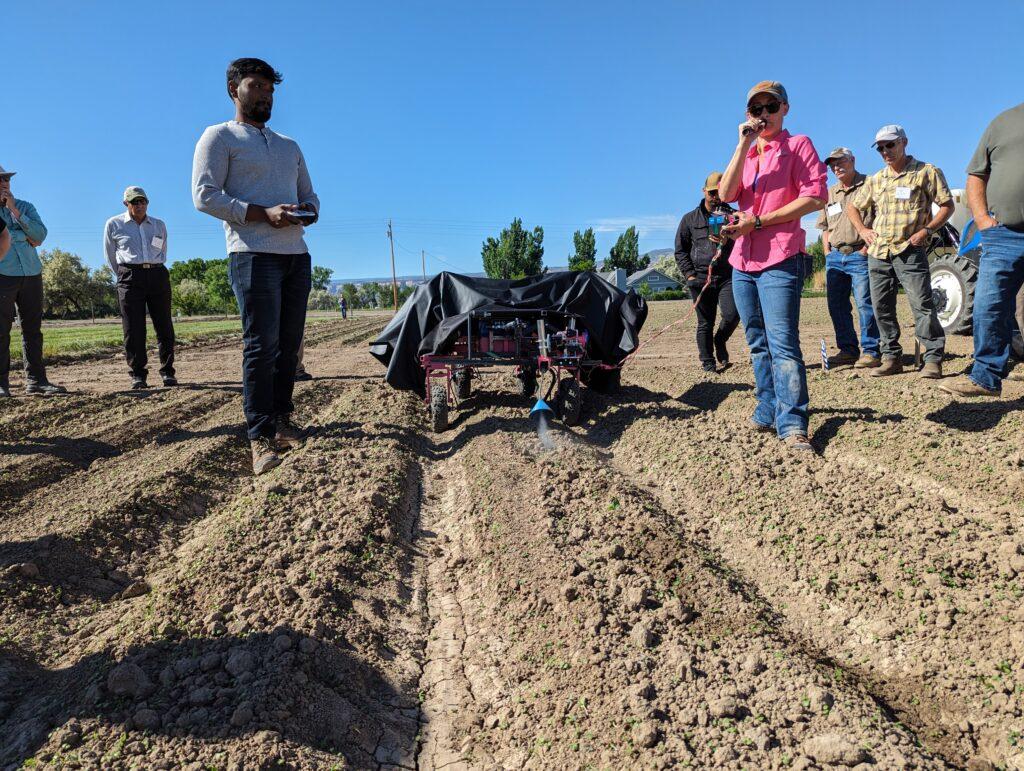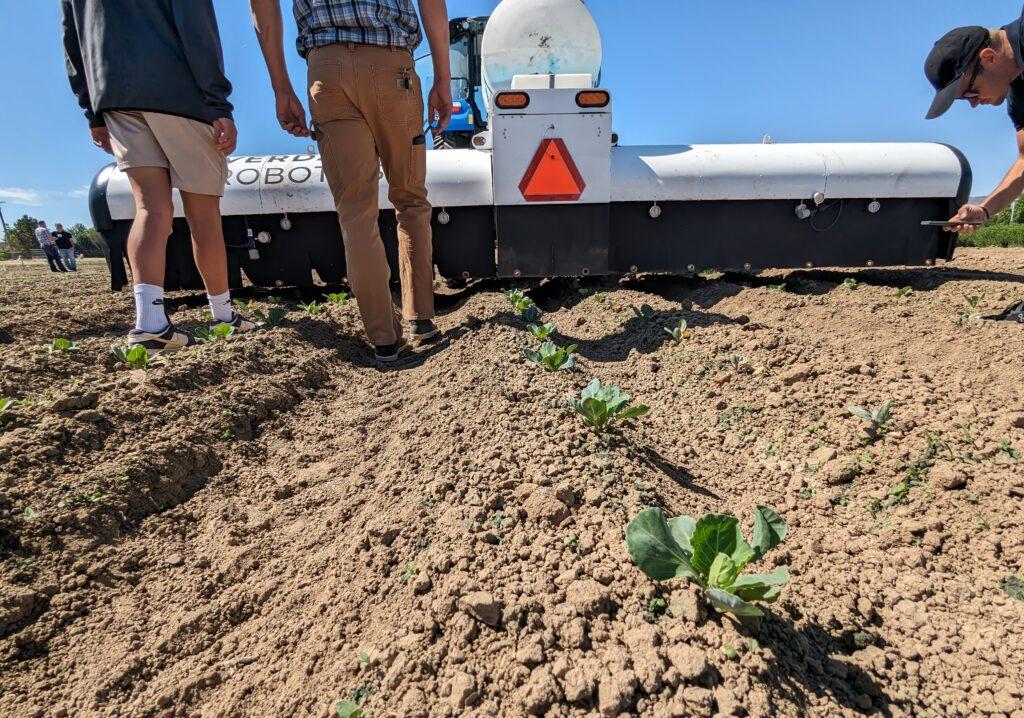
Amid a growing agricultural labor crisis, a cadre of computer scientists, farmers and venture capitalists are pitching tech-based solutions that bring to mind a joke from a late `90s comedy classic.
“Have you heard the solution called the sharks with lasers on their heads?” Adrian Card, with Colorado State University Extension, asked a crowd of farmers on Friday, referencing the 1997 Mike Myers film “Austin Powers.”
Card was addressing producers at a CSU research farm near Fruita who were gathered to learn about “automated weeders,” which can range from targeted blasts of steam delivered from a robot to smart spraying units that use machine learning to differentiate weeds from crops and deliver small sprays of herbicide right where they’re needed. And, yes, even lasers.
“This one takes lasers — carbon dioxide lasers — it creates thermal energy to kill very small weeds. And we now have four of these deployed in Colorado,” Card told CPR News.
Card said no one’s set a field ablaze using the laser weeders, which target green plants, thereby avoiding fire risk.
Carbon Robotics manufactures the laser weeder, but it’s just one in a growing field of companies looking to usher in the next era of farming.

At the research farm, growers also heard from three other companies building agricultural innovations — based in La Junta, California and Switzerland.
Sarah Hinkley, CEO of Barn Owl Precision Agriculture, showed off a small unit that can remove weeds with a blast of steam. That company can visit smaller producers to provide the service.
“There's just no silver bullet for all of the weeds at the same time. I mean, even chemicals don't work anymore,” she said. “(We’re) not millimeter accurate, but we can get centimeter (accurate) and if that's good enough then we can solve some problems,” she told the crowd.
Hinkley’s company set up at the research farm with a company from Switzerland and one from California demonstrating precision spraying options with large, sophisticated implements pulled behind a tractor.

The emerging field of technology is, predictably, expensive. Thus far the larger companies are focusing on the biggest growers in states like California. Card said events like the one at the CSU research farm are meant to bring those innovations a little closer to Colorado. One big reason is the cost of labor.
“This plays against the backdrop of recent legislation that created an overtime wage requirement for agriculture,” Card said, referring to SB21-087. But Card said technology like this isn’t meant to replace the entire workforce, but rather allow the shrinking labor pool to be deployed more effectively.
“Growers are adamantly wanting to retain their employees as much as they can,” he said.
But Chuck Hanagan, president of the Colorado Fruit and Vegetable Growers Association, said the labor crunch seems to be getting worse..
“It is almost impossible to staff your farms with labor anymore. It's not the most rewarding. It's back-busting work,” Hanagan said.

Hanagan said he’s encouraged by the new tech options, but notes that it’ll be a struggle to make the economics work for all growers. The upfront costs can be around $1 million depending on what’s being bought. Hanagan also said farmers might be wary of getting invested in equipment that could be a bigger challenge to repair.
“I mean, here on the Western slope, we don't have 10,000 acres of broccoli and cabbage to utilize a multimillion-dollar machine,” he said.
Card said the economies of scale are still a factor but that gap is closing. He said Europe has been on the front lines of the automation push, and he expects more companies innovating across the Atlantic Ocean to appear at future showcases in Colorado.









